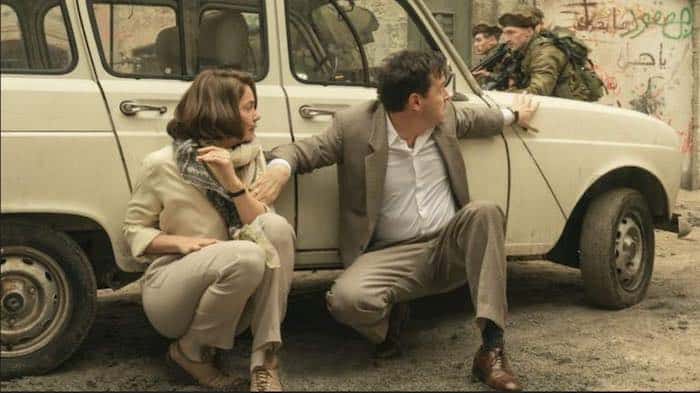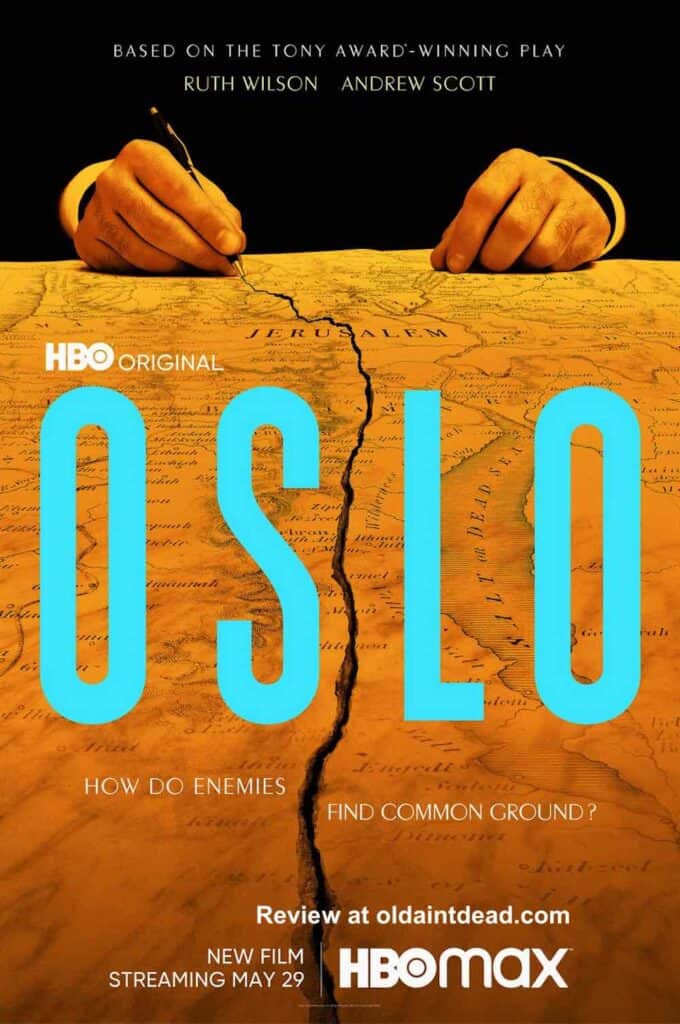Oslo is the story of how the Oslo Peace Accords between Israel and the Palestinian Liberation Organization came about in the 1990s. The movie culminates with Yasser Arafat and Yitzhak Rabin shaking hands at a press conference with Bill Clinton, but the Americans had nothing to do with the peace accords. The film is available from HBO Max.
The actual organizers of back channel peace talks between Israeli and Palestinian representatives were a Norwegian couple, Mona Juul (Ruth Wilson) and Terje Rød-Larsen (Andrew Scott). She was a Norwegian diplomat, he was the head of a think tank. They were there to facilitate only – no interfering in the process.
Mona and Terje got 4 men in a room to talk face to face. They also ate together, drank together, argued, laughed, and compromised. It was not the normal way to negotiate, but it worked.
While public negotiations were held, this small group of people met in secret in Oslo to talk through a peace agreement. From the PLO came Ahmed Qurei (Salim Dau), the PLO Minister of Finance and Hassan Asfour (Waleed Zuaiter).
These two never changed, but as the talks moved along the Israeli representatives were steadily moving up in rank. First there were Yair Hirschfeld (Doval’e Glickman) and Ron Pundak (Rotem Keinan), economists from the university of Haifa. Next came Uri Savir (Jeff Wilbusch), from the Israeli Foreign Ministry. When things got really serious Joel Singer (Igal Naor), a lawyer, came to attack the wording in the documents. In the final moments of negotiations it was Shimon Peres (Sasson Gabay) on the phone with the PLO. Yasser Arafat was mentioned many times, but was never seen with an actor in the part.

The film was adapted from a play by J. T. Rogers. The back channel diplomacy was interrupted by flashbacks to a time when Mona and Terje were in Gaza and were witness to the killing there. I thought those scenes were there to give the film a more cinematic feel as opposed to that of an adapted stage play.
The timing of the film and recent events between Israel and the Palestinians in Gaza was coincidental. However, it struck me as very sad that 30 years after this brilliant and unusual feat of diplomacy people are still killing each other there. A lot has changed, and a lot has not changed. That makes the film topical in the most depressing of ways.

Here’s the trailer.
Have you seen the film? What was your reaction to it?
